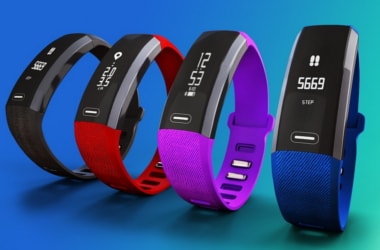
Fitness Bands and Gadgets - Pros and Cons
Fitness bands and gadgets that are linked to fitness apps have fast become trend among everyone who worries about their health, diet and nutrition. The obese have made it their obsession as if just wearing those tiny and stylish bands would immediately lead to drop in those extra pounds you put while savouring the unhealthy delicacies.
The usefulness of this wearable technology has recently been questioned when it was found that people developed obsessive compulsive disorders of keeping a check on heart rate and making sure that it matches the set criteria of the band. Do we really want this kind of device that could worry us for no reason and make a perfectly healthy person restless?
Pros1. Under scannerSpending more time physically inactive is what most people do today. Our work is mostly concerned to spending ours at the office desk. We might walk from office to the parking lot of let’s assume bus stop and be satiated that we did our share of burning but that is not the case considering accurate facts. The devices can do a reality check and show us the distance we walk during the day compared to the distance one should cover to stay fit.
2. Eye openerGetting one of these good devices can encourage the person to become physically more active and give concern to what they eat. Counting calories and knowing the effect it can have on the body of the person can motivate someone to workout harder and keep the amount of junk and unhealthy food to the minimum. But this goes only for someone who is dedicated towards using the band and not wearing it like a piece of trendiness.
3. Sleep regulatorIrregular sleeping habits are one of the leading causes of health issues. With the usage of smartphone and more technology, we have made ourselves less concerned about getting proper sleep. The fitness band reminds you and shows if your sleeping patterns are wrong or irregular. If you aren’t getting enough sleep, this device will alert you.
Cons1. Inaccuracy in BMRThe calories consumed and the calories burnt may or may not be accurate in these fitness tracking apps. The BMR or basal metabolic rate is calculated based on age, weight, height and energy expended but there are factors that affect BMR like hormonal disorders, genetics, prescribed drugs, fitness level, pulse, etc. These factors are not taken into account due to which there could be a difference of about 100-200 calories in the result shown.
2. Error in distance trackingIt has been proven that different fitness trackers show different readings when used by the same person running the same distance at the same time. This is very likely to make a person restless if he is serious about keeping track of his steps. Completely relying upon the results of the fitness tracker would lead in anxiety and that is doing no good to health.
3. RestlessnessOne of the worst disadvantages of wearable technology for fitness tracking is that either people ignore it which makes it a waste of money or the cause of OCD if you are following it too vigorously. For instance, when we know our body needs sleep, we don’t want a device beeping in to say that it is not the right time to nap. Relying too much on a device to predict if you are doing everything right is the worst way to stay fit.
4. They are expensiveYou know what to eat and what not. You also know that your body begs you to put aside some time for morning walks and to hit the gym at least 4 days in a week. You also know the duration of sleep your body need. Why do you need to invest all that money in a band that directs you to an hour of worrying with a dashboard of an app to tell you things you can do without it?
If one has a cheater’s regime of working out or eating unhealthy, no fitness device in the world can set things right for you. Fitness trackers, just like any other device have their advantage only when kept to a minimal usage or else it becomes an obsession.